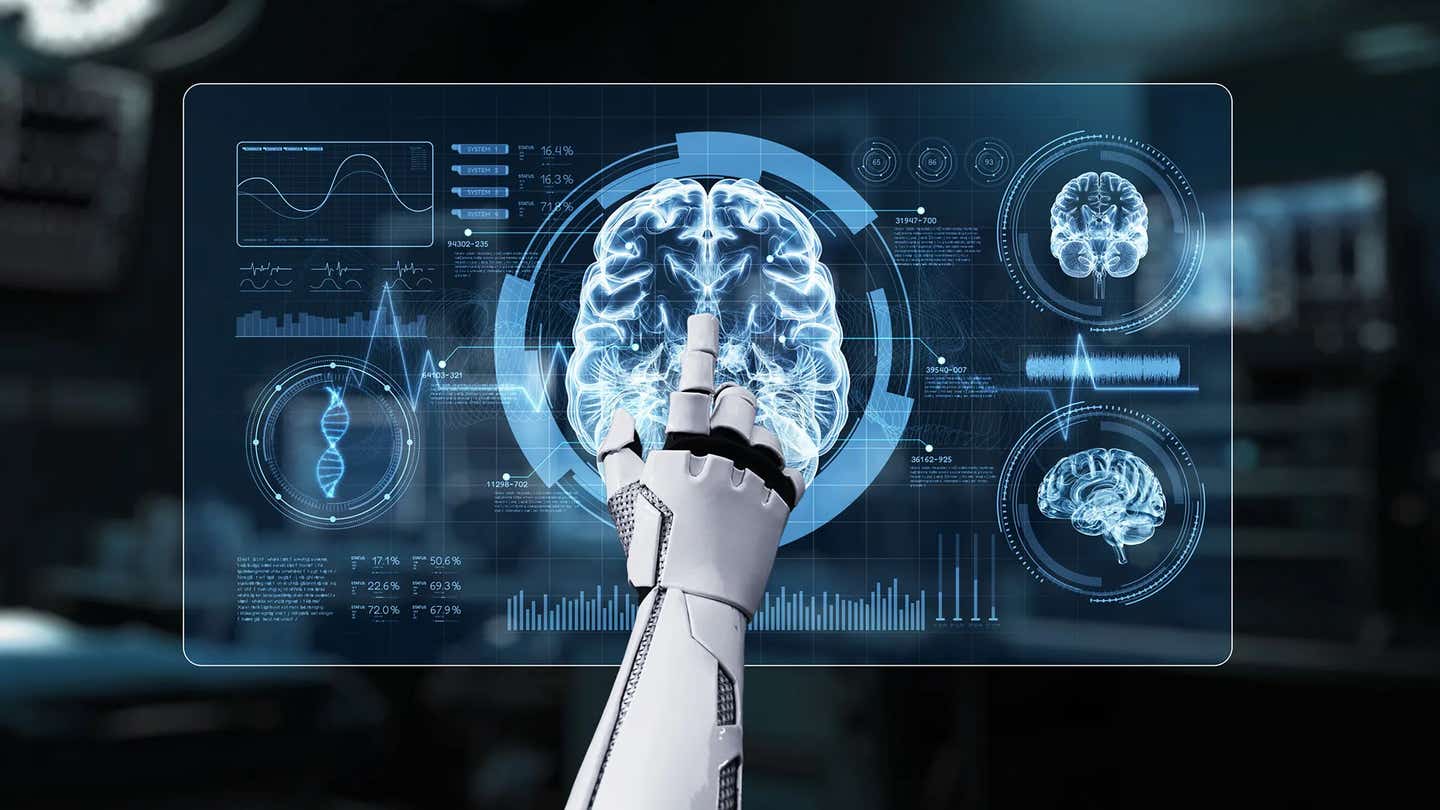Scientists develop memory-boosting protein to treat Alzheimer’s Disease
The researchers have successfully genetically modified a key brain protein, LIMK1, which plays a critical role in memory processes.

[Nov. 19, 2023: JJ Shavit, The Brighter Side of News]
The researchers have successfully genetically modified a key brain protein, LIMK1, which plays a critical role in memory processes. (CREDIT: Creative Commons)
In a groundbreaking study conducted by neuroscientists at the Faculty of Medicine and Surgery of the Catholic University, Rome, and the Fondazione Policlinico Universitario Agostino Gemelli IRCCS, a remarkable advancement in memory research has been achieved.
The researchers have successfully genetically modified a key brain protein, LIMK1, which plays a critical role in memory processes. The innovation involves the addition of a "molecular switch" that can be activated using the drug rapamycin, known for its anti-aging effects on the brain. This achievement offers new insights into memory function and holds promising potential for addressing neuropsychiatric conditions, including dementia.
Published in the esteemed journal Science Advances, this collaborative study was spearheaded by Professor Claudio Grassi, a distinguished figure in the field of physiology and the Director of the Department of Neuroscience at the Catholic University, Rome.
The research received support from the Italian Ministry of Education, University and Research, the American Alzheimer's Association Foundation, and the Italian Ministry of Health, underscoring the significance of its findings in advancing our understanding of memory and potential applications in treating cognitive disorders.
Related Stories
At the heart of this research lies the LIMK1 protein, a molecular player of paramount importance in shaping structural changes within neurons. Specifically, LIMK1 facilitates the formation of dendritic spines, which are instrumental in enhancing information transmission within neural networks and are pivotal to the processes of learning and memory.
Professor Claudio Grassi elucidates the intricacies of memory formation, saying, "Memory is a complex process that involves modifications in synapses, which are the connections between neurons, in specific brain areas such as the hippocampus, which is a neural structure playing a critical role in memory formation." He further explains the phenomenon of synaptic plasticity, which encompasses changes in the structure and function of synapses when a neural circuit is activated, often triggered by sensory experiences.
"Some of these proteins are particularly important for memory, in fact, reduced expression or modifications of these proteins are associated with alterations in cognitive functions. One of these proteins is LIMK1. The goal of our study was to regulate the activity of this protein, as it plays a key role in the maturation of dendritic spines between neurons. Controlling LIMK1 with a drug means being able to promote synaptic plasticity and, therefore, the physiological processes that depend on it," emphasizes Professor Grassi.
Engineering extrinsically disordered LIMK1. Schematic of the canonical signaling cascade leading to structural long-term potentiation (LTP). The arrows indicate the activation, and T-shaped bar indicates inhibition. (CREDIT: Science Advances)
Cristian Ripoli, Associate Professor of Physiology at the Catholic University and the first author of the study, emphasizes the pivotal role of the innovative 'chemogenetic' approach employed in this research, which ingeniously combines genetics and chemistry. Ripoli explains, "The key to this innovative 'chemogenetic' strategy, which combines genetics and chemistry, is precisely linked to the use of rapamycin," a well-known immunosuppressive drug recognized for its life-extending and brain-boosting properties in preclinical models.
"We have, therefore, modified the sequence of the LIMK1 protein by inserting a molecular switch that allowed us to activate it, on command, through the administration of rapamycin," Professor Ripoli continues. The results were nothing short of remarkable. In aging animals exhibiting cognitive decline, this gene therapy approach, combined with rapamycin administration, led to a significant improvement in memory.
Inducible cofilin phosphorylation in living cells. (CREDIT: Science Advances)
This breakthrough method provides the means to manipulate synaptic plasticity processes and memory, both in physiological and pathological conditions, opening the door to the development of "engineered" proteins that could revolutionize neurology research and therapy.
Looking ahead, Professor Ripoli envisions a promising trajectory for this research, stating, "The next step will be to verify the effectiveness of this treatment in experimental models of neurodegenerative diseases exhibiting memory deficits, such as Alzheimer's disease. Further studies will also be necessary to validate the use of this technology in humans."
Enlargement of dendritic spines induced by engineered LIMK1 activation in hippocampal organotypic slice cultures. (CREDIT: Science Advances)
The implications of this study are profound, not only for our understanding of memory but also for the potential treatment of neurodegenerative disorders that exact a heavy toll on cognitive function. Alzheimer's disease, in particular, is a formidable adversary, and the ability to manipulate memory processes offers a glimmer of hope for patients and their families.
The "molecular switch" approach, which can activate or modulate key proteins like LIMK1 using rapamycin, represents a revolutionary approach in the field of neurobiology. It holds the promise of not only enhancing memory function in individuals with age-related cognitive decline but also potentially offering therapeutic avenues for those grappling with neurodegenerative conditions. The significance of this study lies in its potential to unlock the secrets of memory formation and to provide a ray of hope for individuals affected by memory-related disorders.
The future of memory research has never looked brighter, and the possibilities for improving the lives of countless individuals are boundless. As Professor Claudio Grassi aptly summarizes, "The journey to unlock the mysteries of memory is far from over, but this study represents a significant step forward in our quest to understand and harness the power of the human mind."
Note: Materials provided above by The Brighter Side of News. Content may be edited for style and length.
Like these kind of feel good stories? Get the Brighter Side of News' newsletter.



